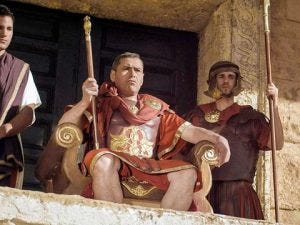To the modern reader, there may be nothing written in Scripture more bewildering than one short phrase: "the fear of God." For example, believers are given this commandment: "You shall not wrong one another, but you shall fear your God, for I am the LORD your God" (Leviticus 25:17). In contrast, the fear of God is described as the one thing that unbelievers lack: "There is no fear of God before their eyes" (Romans 3:18).
Then we have this verse: "Do not fear, for God has come to test you, that the fear of Him may be before you, that you may not sin" (Exodus 20:20). Do not fear, but fear?
Ah, but then we see some light at the end of this tunnel: "That you may not sin."
Consider also this verse: "You shall walk after the LORD your God and fear Him and keep His
commandments and obey His voice, and you shall serve Him and hold fast
to Him" (Deuteronomy 13:4).
From our own cultural perspective, we naturally see "fear" as meaning "be afraid." And the example from Exodus shows that it means that in the Bible sometimes, too. However, it has a broader meaning than we give it today.
We Americans have never had a king, so we sometimes miss some of the imagery of the Bible, which unreservedly portrays God as an absolute king, even calling Him, "He who is the blessed and only Sovereign, the King of kings and Lord of lords" (I Timothy 6:15). The God of the Bible is King in such an absolute sense that He is king of all kings, and lord so absolutely that He is lord of all lords. We are to understand His rule as so singularly absolute that we have no higher words by which to name it.
Now think of the average person on the street who randomly runs into the President, or Prince William, or some TV or sports celebrity. In such a circumstance, the person is often struck dumb with awe, trembling even. He isn't afraid of the personage in the sense that he fears that he will be hurt. Rather, he is struck with such an awe that he cannot conceive of any other thought or action.
To a greater extent, that is the fear of God described in Scripture. The believer is so in awe that he cannot be distracted by any lesser concern or influence. That is why Moses can say that it is fear of God that inspires us to serve Him and hold fast to Him. This isn't a fear of punishment. Rather, it is an awe that precludes any lower considerations. Moreover, the hard part for an American is that it leaves no room for personal autonomy. God is the absolute sovereign, not me. This is not a democratic concept!
HYPERPRETERISM VS. THE GOSPEL (2)
1 hour ago




